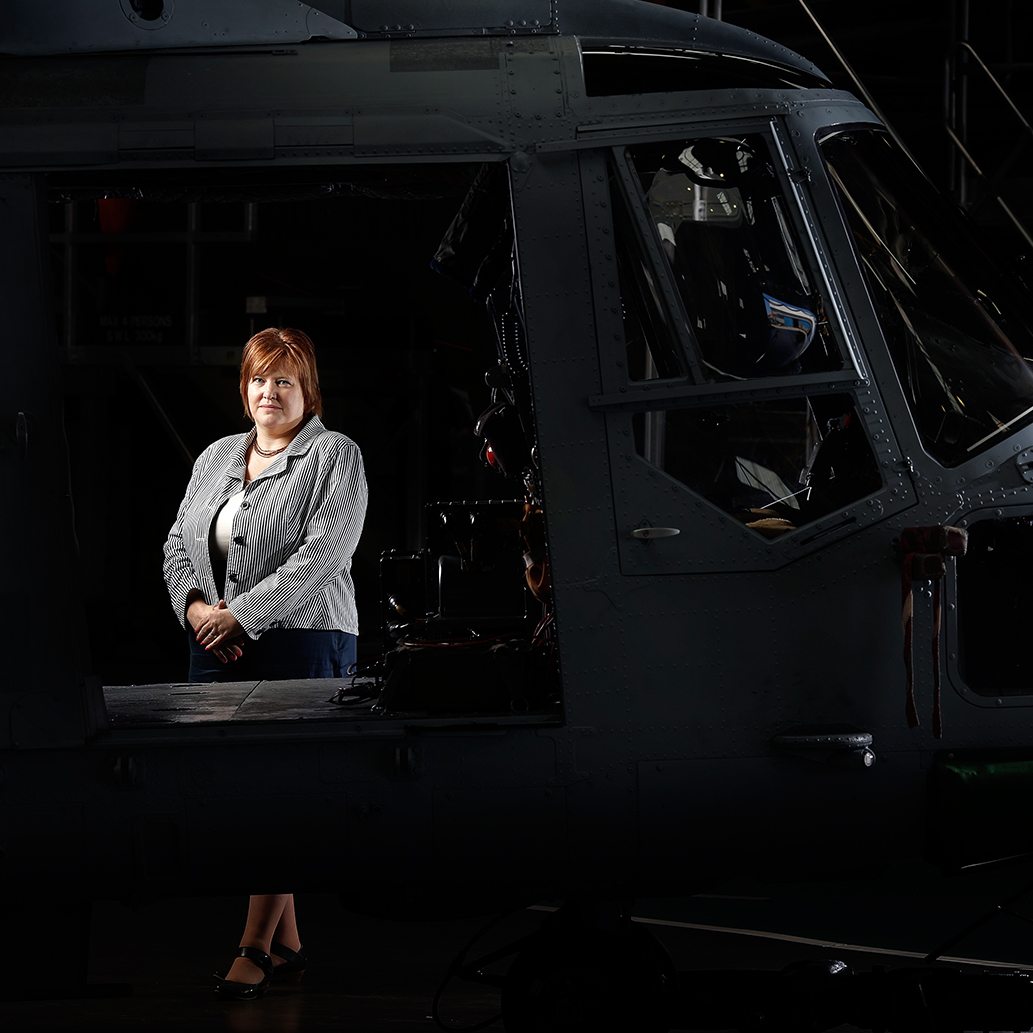Claire, tell us about your early career and what it was about HR that attracted you.
I studied psychology at Goldsmiths College, and I actually wanted to pursue a career in science, but it seemed a bit pure for me. I stumbled upon occupational psychology, which is of course primarily about how people behave at work and how it can make a huge difference to organisations, and I kind of fell in love with it really. It helped that I had an inspirational tutor, and he took me under his wing and nurtured me about all the things that go on in the real world, in businesses outside of the university campus.

When did you start to think about channelling this learning into a career path?
Initially, I guess I did what most people do, looked at milk rounds, and I was successful at landing a job at Lloyds Register of Shipping in London, as a recruitment officer. Fresh out of education, this was a real eyeopener, but quite quickly I drew a lot of similarities between the world of work and what I had been studying for the past few years and, although daunting, that was hugely encouraging. As I reflect now, on my role here at Vector Aerospace, there are a lot of similarities with my first job, insomuch as it was a hugely complex, engineering-focused organisation. Essentially, I cut my teeth on recruitment, in a rapid and expanding area and despite my relative inexperience, I was given a lot of freedom to use my initiative and quite frankly learn from my mistakes. In terms of what was needed in resourcing, I was basically told what skills and experience were required in the various departments, and was pretty much left to my own devices to meet the needs of the internal customers “hiring managers”. So I had no choice but to hit the boards running, and I have always been grateful that my managers gave me support, but also that freedom to learn under my own steam.

How useful was your academic learning to the role?
A lot of the big organisations were using psychometrics at the time, but for all the obvious reasons, it wasn’t filtering down into service and engineering sectors as quickly. I remember suggesting that we introduce psychometric testing at interview stage to see, for example, whether candidates were suitable for the challenges of an overseas chartered engineering role, after a few years of industry training. I wrote a fairly extensive paper on the subject, and it took two years, but it was accepted, finally. This actually taught me a very important lesson which has stood me in good stead in my HR career, that change takes time, a great deal of effort and conviction is required to achieve anything worthwhile. I found early on that a big part of HR is sales – you have to sell a concept to people, and you have to keep on selling, lobbying and establishing the right relationships, in order for proposals to be accepted. However frustrating it gets, never give up if you believe in something.

Straight out of University, in a very male-oriented environment, that must have taken some bottle.
I was coming from an academic and scientific approach, and I had confidence that my way of thinking would work in this environment. However, as always, practice is something else! I knew we would have to get it right quickly, demonstrate tangible benefits fast, and I remember thinking that if we got it wrong, there wouldn’t be a great deal of sympathy. It was a male-dominated environment and we were having some failures in recruitment, so that did give the impetus to try some different approaches, and I think I must have shown that I really wanted to bring in some improvements. As with many things in life, results count. Still, I felt that a big part of my job was to influence people towards my way of thinking and, as they were engineers, I angled it as an argument for logic, science and tangible improvements and eventually, that won through. There was a success story at the end of it.
This is HR strategy, and this must have influenced your progression into the practice?
Yes definitely, it opened me up to strategic HR, and I moved on to building a new HRIS system, got involved in employment law and disciplinary cases. I recall at the time, bullying was an issue, and that was hurting the business. Case law was just starting to gather momentum on the matter, and there wasn’t anything at all in the organisation to deal with this. Again, a controversial proposal was made, this time accepted more quickly, and we had to work rapidly, introducing and rolling out education and training to all line managers, setting up support frameworks, helping them deal with such cases. Again, my psychology training proved a sound foundation for dealing with how people learn and why they behave in a certain manner at work. Looking back, it’s hard to believe that organisations were so ill-equipped to manage such fundamental issues as bullying and harassment. It does illustrate how far HR has travelled in a relatively short period of time.
Some people thrive in confrontational environments. Did you discover you were one of these?
Yes, an example was my next role at UK Paper as a European HR Advisor, in a highly unionised environment. Back then, there weren’t many women in the industrial relations arena and I thought it would be a fundamental step for my career progression, to have some experience like that under my belt. I found myself in confrontational situations almost daily and I found out quickly that I was actually very effective in negotiations, and this lead the way to three further roles in highly-unionised organisations: Allied Bakeries, Human Resources Manager; Lafarge Roofing UK, Human Resources Manager, and finally working for Aliaxis as their UK HR Director. However it wasn’t all about confrontation and negotiation, each of these roles drastically expanded my HR horizons too.
I remember an old boss of mine had a fairly aggressive coaching method to HR – the old school way of teaching – and that was just not part of my makeup. I tried his approach once and I felt very uncomfortable, so I had to hone my own style, which favoured listening and understanding and from there trying to broker the deal, and this has been my whole HR approach. Even when you’re working in unpleasant situations where two sides seem to be entrenched and intransient, if you can make both sides understand the issues, give people visual comparisons, you can generally find a way forward. This experience has proved invaluable today too. An example would be here at Vector Aerospace where we had to close the Defined Benefits Pensions Scheme and, through our presentation of the facts and reasons of why we were doing this, we received an 89 percent acceptance throughout the workforce for this difficult decision. It was clear to me that the workforce understood why, even though it was quite an unpalatable thing to have to work through with individuals.
What have you learned about managing people that your psychology academic background could never have prepared you for?
Preparation is everything and planning of a process is fundamental to success, but you also have to be realistic around expectations and outcome – sometimes you end up in a better place than you would have anticipated, sometimes not. Keep your mind open, listen to ideas, be understanding of fears and concerns and always have practical approaches to problems and obstacles. Some things may seem trivial in the great scheme of things, but trivial things are often attached to much bigger issues for an individual. Have the energy and take the time to look beyond what you are confronted with, be honest and courageous, and trust your intuition. Also having conviction and being direct and decisive doesn’t mean being hard faced. Ultimately, people are capable of making a judgement of what is right, providing you make the case. Be consistent and people will start to have faith in you.
Tell me about Vector Aerospace, the challenges for the sector and the organisation and what attracted you to the business?
Seven years into my career at Aliaxis I was a fully-functioning HR Director, with a good track record, and I thought it was time to take stock of my career so far and consider my next move. When the role of HR Director at Vector Aerospace came up, the company had traditionally been in the public sector, specifically the Ministry of defence (MOD) and that was about to change. When I had joined, my biggest challenge was to commercialise the business, to prepare it so that the business could compete in the private sector.
The first big realisation I had was that I had no qualified HR people in my team. They had come up through the administrative ranks and had not been given any formal training. As a result, the department was somewhat shapeless and in need of direction. Take for example policies, which were on average 75 pages long; if a manager needed to speak to someone about time keeping they would have to wade through reams of paper to get to the crux of what the policy was. Needless to say something a bit more complex, such as increasing peoples pay, took four months from the time the increase was agreed – so how could we promote an agile workforce when processes were so cumbersome?
First was the plan, I carried out a survey of the services to key HR users looking for a base level of what people thought, and crucially it was about what the internal customer needed. I asked some fairly blunt and direct questions that HR as a service to the organisation had simply not addressed and, in no uncertain terms, I received just as blunt a response, and clear indication of where the organisation was hurting. You only know what to change by digging deep and really getting under the skin of the business. Therefore, for the first six months, it was about identifying the areas that needed addressing. Relationships with the Union were highly suspicious and lacked trust, pay and grading was not linked to merit, there was little employee reward recognition or even thank you’s and the absence rate was almost eight percent. Next up, and equally critical, was rapidly addressing the long-term damage of under-investment in people, in terms of training and development. There were a lot of managers that had never been trained in management, so consequently, and not surprisingly, we had lots of noise around shortcomings in managers who, beyond their skills and capabilities in engineering for example, simply didn’t understand their roles. My proposal was to train these people in management, rather than assess them first, and only train the ones who got through. I also started in the middle of the organisation, where the need was most keen. Personally, I favour an emergent approach to change, start giving tools to the area where there was the largest numbers of management roles and, in my opinion, would deliver the best results. Previously, I had started at the top and worked down, just like the textbooks say, but I find that approach can be a little pedestrian.
Very quickly indeed, the management training changed the whole atmosphere and cleared the way to more practical and rewarding relations and outcomes. In general, people have been more engaged, more receptive and, consequently, prepared for a more commercial approach to the business and the training has unquestionably been instrumental in this outcome. The 8th round of the management development programme finished a few weeks ago, that’s 130 re-skilled managers in just three years, which I am very proud of. To celebrate, each group’s achievement, we actively encourage them to talk about what they have learned and this approach has made a huge difference. There is a palpable excitement and vigour for getting to grips with the business challenge, and we partner with Roffey Park, which really means something on a CV.
What are the key differences in training and development now in comparison to the past?
In the past, training was in house and traditional, death by Power Point, with a few invited to be trained in the wider civil service arena. The beauty of what we do now is that it’s tailor-made. We have a “Vector Way” and we have introduced, with great success, some innovative methods; such as bringing actors in to role play and practice the conversations between managers and employees, focusing on the obvious fact that management is so much more than engineering skills. Engineering is very black and white, very sharp and uncompromising, so when a conversation comes up regarding illness and absence it’s often not an easy conversation to have. To achieve a successful outcome the process can often be tough and unpredictable, therefore the objective of the training is to inspire confidence. Our managers needed this practice in conducting appraisals and performance management, especially those who were apprehensive about giving appraisals in the first place. We have also had strong backing from our Managing Director – you can’t beat endorsement from the top, on people issues, to help smooth the way. There’s the whole macho culture of not showing emotions, saying to someone well done you should feel proud or that achievement, it’s a sort of guilt issue, and nobody should feel guilty about feeling good about an achievement and recognising it daily within your teams.
Does it concern you that you are introducing innovative change and, some might say, soft issues, into a traditionally uncompromising environment?
The margin for failure is present! You have to be realistic and sometimes we try things that don’t work, but as I said before, it’s about being brave and admitting failure is equally important to celebrating success. Just because something doesn’t work, that doesn’t mean there is not a compelling reason for trying something else, just have the guts to try a different approach, go back to the drawing board. You need to be as open about those things as you can. Admittedly, it’s hard, especially for senior managers. Personally though, I feel being able to admit something has failed is empowering. We’ve introduced that in-house, a tailored leadership programme, to build a culture that supports the behaviours that the focus cannot be just about winning at the cost of all else, it’s about continuous improvement.
What are the key challenges to making sure the business is “future-prepared” in terms of skills and resource planning?
Well, inherently this organisation has a very low turnover and we had a culture where people would leave the organisation and, if things didn’t work out, come back. In short, we were a safety net and that required a change in approach. It’s important that HR champions bringing in new blood into the organisation. As with other businesses in this market, there’s a skills shortage and we want to attract new employees that can bring ideas and skills to our business. It is very encouraging that apprenticeships are up on trend, Vector has always been a strong supporter of these schemes. We also need employees with agility, so that we have people who can respond to conflicting demands, who demonstrate greater innovation, and we are actively recruiting graduates for the first time at our sites. I can converse with the Managing Director at any time on an idea or a proposal and we need that attitude and immediacy right across the workforce, ensuring we are never flat-footed and always capable of seizing commercial imperative and business opportunity. If we need certain skills to work on a grounded aircraft in Europe, we need the right people ready at a moments’ notice.
There’s a lot of change that’s setting a new agenda, and we must be doing something right because much of the impetus is coming straight from employees.They have ideas, accept that change takes time and are still staying with the organisation. They’ve stepped up to that mark and that’s part of this commercial imperative that competing in the private sector brings. They feel part of the business, they’re hungry for the business to succeed and grow and you can feel that commercial spirit, which I am told wasn’t there in the “old days”.
And what is the next stage for HR in its journey to meet the needs of the business?
The ability to respond to where the business is going, without flagging, so resourcing and infrastructure needs to get there. You can’t bank on growth as a given, there may equally be decline, and both involve huge HR input. Our commercial teams are out there generating business and it depends on us having the work bill to do that. What I’m looking for is flexibility, having just one strategy is not enough, so we need agile people who can wear different hats for the business at different times and do that effectively, confidently and robustly. We need the ability to resource these people from within, as opposed to being reliant on outsourcing or hiring for specific skills on an ad/hoc basis. Part of my drive at the moment is to get my HR team as widely experienced as possible, as I know that was immeasurably useful in my progression.
Do you feel satisfied with the progress you have made HR-wise and how is this translating into the needs of the business?
Yes, my message now to the business is; “You can throw at us what you like, we can absorb the pressure and we will step up and deliver”. For me it’s all been about giving the business the confidence to rely on HR, to deliver the resourcing needs, as well as the foundations for the operation of the business. It’s about ensuring they understand that and then we’re ready for whatever comes. I feel hugely confident about the business. For certain, it will not, cannot, retain the same shape. The private sector opportunities dictate there will be much more engines-focused work and we have got a huge population of highly-skilled people in that department. As I mentioned before, skills are in short supply in the sector and if we have a vacancy, a limited number of applicants may come into our focus, as there are only a few people with those specific skills. We are hugely focussed on our employer brand and aim to show any potential candidate what a career with us could be like today or at some point in their career. It can be a real fight for the right candidates at times even in today market, it’s still candidate-driven, in my opinion, in the aerospace sector.
That’s great for your business but a sad indictment of the future of engineering skills in the UK. What can be done about that do you think?
It’s encouraging to see that recently the Chartered Institute of Personnel and Development (CIPD) took up the mantle on this area by publishing a report entitled Employers are from Mars, young people are from Venus: Addressing the young people/jobs mismatch, which highlighted the lack of careers advice and guidance in schools as one of the core problems faced by our young people today. We really do need as many voices as possible out there promoting the importance of careers advice early on. I think schools, colleges and universities need to promote training and qualifications in areas where there are skill shortages, and hence greater job opportunities. Curiously, despite its many applications, engineering is one such sector. They need to draw the strands together where there are jobs and factor in funding around education that supports that.
In my experience, it seems they set up the academic framework based on candidate choice, desire or expectation, and I do think that universities have done themselves a good deal of damage in attracting students into courses, in subjects for which there is a limited opportunity for graduates. Consequently, this has diminished the value of some degrees. If only twenty percent of graduates are finding positions related to the subjects that they have qualified in, that strikes me as unsustainable, to say the least. Also, the course has very little to do with where graduates may actually find work, so a real lack of joined up thinking. There seems to be a disconnect between employers and education too. Yes businesses go into schools and do talks, but there’s no follow up or long-term, meaningful connection made. We need to ask; ‘why are we pouring money into education if it doesn’t improve the GDP, reduce the unemployment queues and lead to potential talent being left on the wayside’? I went to an education and partnership conference and Terry Leahy, the then CEO of Tesco, made the point that schools have pupils for 12 years, and the percentage of delivering a decent basic attainment of education, coupled with life skills and communication skills is a real concern to employers. Many employers do extend basic education to recruits, but is that really the concern of business? With the rise in the trends of apprenticeships, it’s really encouraging for us just how many applicants compete for our apprentice programmes, and the fact that so many people are interested is very positive.
What about the lack of women in engineering and science-based careers?
It remains a deep disappointment that so few females are entering the engineering sector still. We do have female apprentices and they’re so focused, so determined, that they often win our Apprentice of the Year award, purely on merit, which is absolute proof, were it needed, that we are all the worse off for engineering not being anywhere near the radar of young women. We’re missing out on a lot of people that aren’t being shown the bigger picture showing a wider range of opportunities. They’re being seduced at 18 without knowing the consequences, into stereotypical models. I think we all shoulder part of the blame for this and it needs to be addressed with some urgency, and I think most businesses would see the benefits of that, but it would require some coordination. The bottom line is, when new apprentices come in we tell them they’re going to be earning on qualification around £20,000 straight away. That’s a pretty compelling headline attraction! Ultimately, I don’t think this generation has anything more or less wrong with it, other than the fact that they have a much tougher time to get underway career wise and economically.
Are you surprised about the route that your career has taken?
Yes, I did have a general career objective, but certainly not a tick list of “been-there-done-that”. I’ve been very lucky, but I think I had the energy and motivation to really make the most of every opportunity. I always thought I would end up as a consultant, a lot of people I know went down that road. Recently, I wrote to my old University Professor to thank him for the advice he gave me, that “doing it for real” would be much more rewarding than just dipping in and out as a consultant, and he was so right.












